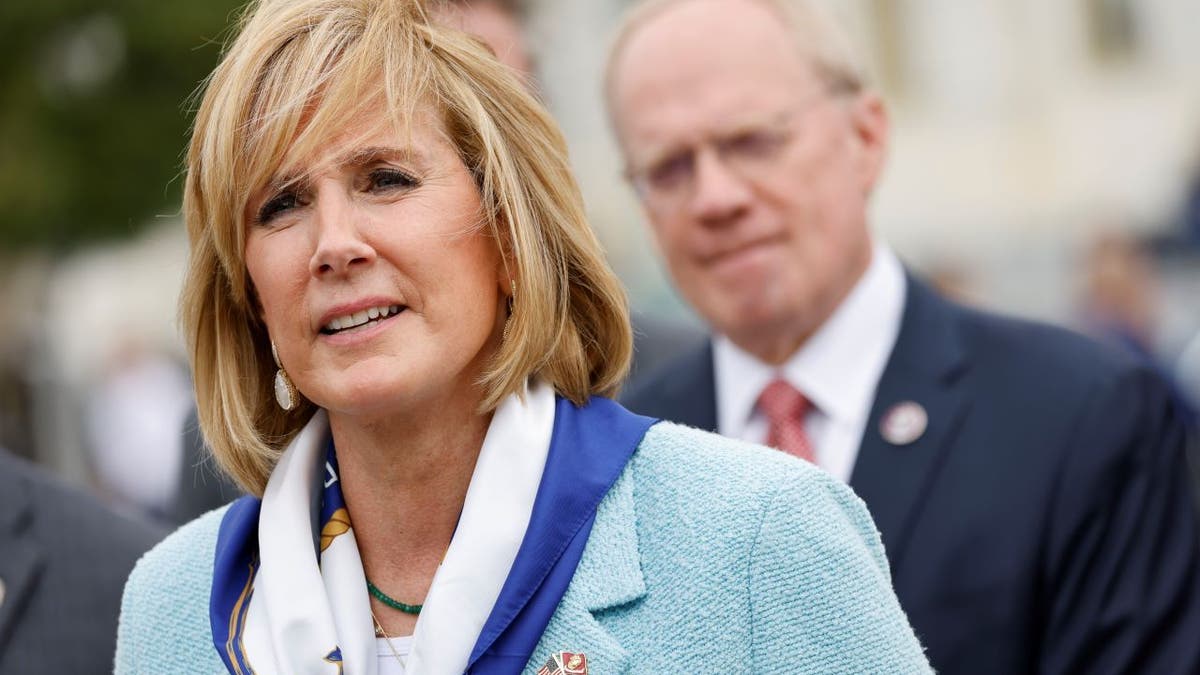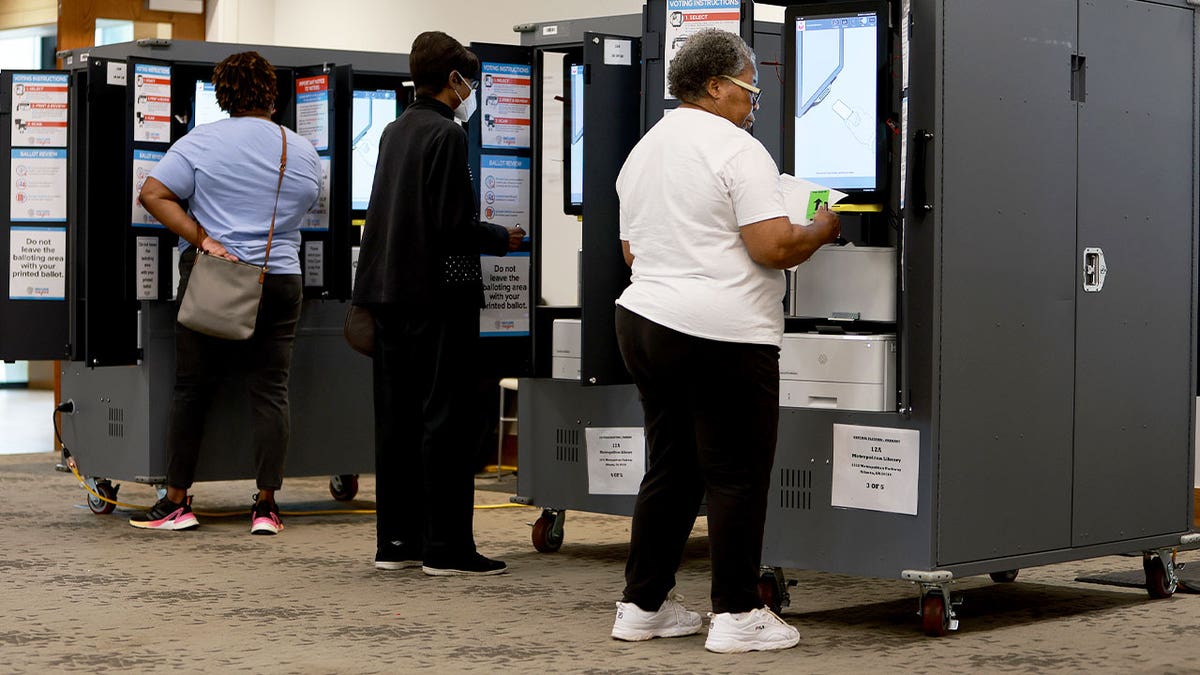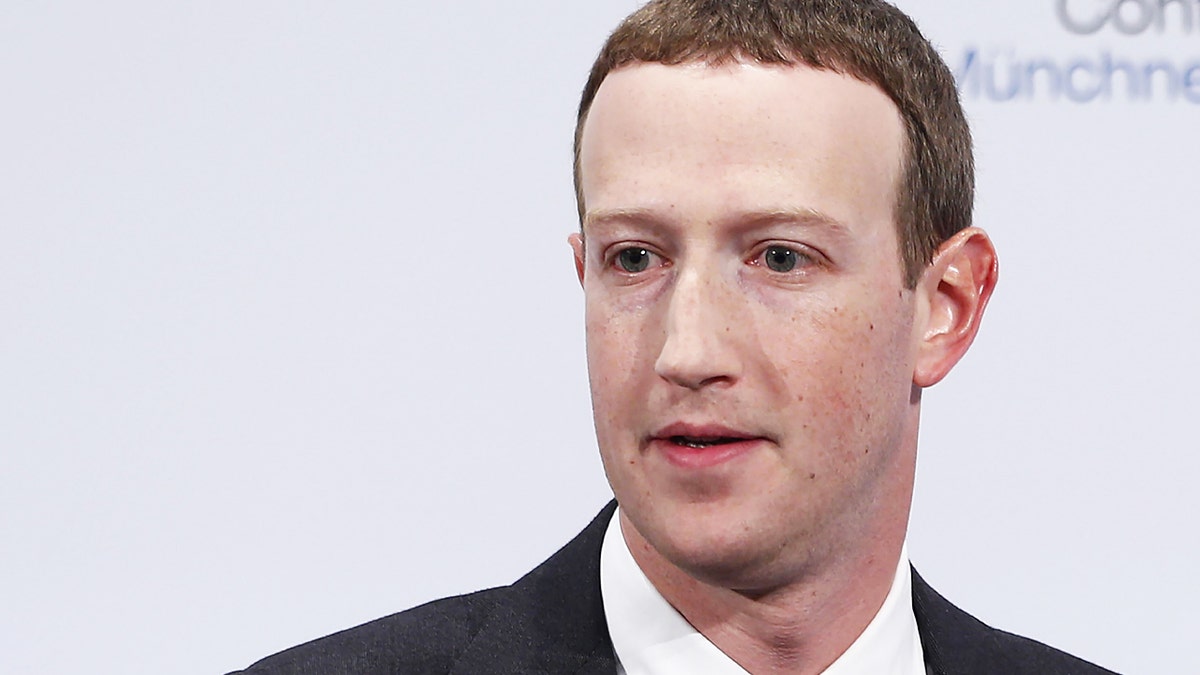New film claims Zuckerberg spent $400M to help Biden in 2020 election
Citizens United President David Bossie joined "Hannity" to discuss the documentary film "Rigged: The Zuckerberg Funded Plot to Defeat Donald Trump."
FIRST ON FOX: A Republican congresswoman’s new bill would ban nonprofits from donating to election organizations – after accusations Meta CEO Mark Zuckerberg used big bucks to pedal political influence in 2020.
Republican New York Rep. Claudia Tenney will introduce the "End Zuckerbucks Act" on Wednesday, which would change Internal Revenue Code to block 501(c)(3) tax-exempt organizations from directly funding official organizations, she told Fox News Digital.
"This kind of influence operation by a third party in America’s elections undermines public confidence in the democratic process," Tenney said.
"It puts private donors in charge of dictating to government agencies what should and should not be done. We cannot allow organizations like this to flout the law or continue their partisan, private funding of our elections."

Rep. Claudia Tenney, a Republican from New York, speaks during a news conference. (Ting Shen / Bloomberg via Getty Images / File)
The congresswoman said the bill comes in response to Zuckerberg and his wife's $250 million donation to the Center for Tech and Civic Life, which aimed to fund grants to local election boards across the country ahead of the 2020 elections.
That funding came with the stated goal of helping jurisdictions deal with the coronavirus pandemic through measures such as paying for ballot drop boxes, voting equipment, additional manpower, protective gear for poll workers and public education campaigns on new voting methods.
Republicans across the country have contended that the funding from Zuckerberg, which ultimately topped $400 million, was used for "just about everything" but coronavirus materials and was instead a means to pedal influence on election boards.
"It turned out that 99% of it was spent on other things and 92% of it was spent on Democrat leaning districts, particularly in swing states, with really disproportionate numbers where they can drive up the vote and use it for electioneering and ballot harvesting and other things to really just try to prime the pump in the election," Tenney told Fox News Digital. "And it worked because the election of 2020 was basically decided by about 42,000 votes. If you just look at those swing states, had they gone the other way, we could have had a different result."
Following the 2020 election, states like Georgia and Florida have enacted laws banning private money from being used to pay for local elections in response to outrage over the funding from the Zuckerberg-linked organization and other groups.
Since then, the same group has been accused of trying to circumvent those laws. Georgia officials told Fox News Digital last month that an investigation had been launched into a $2 million donation from the group that benefited the DeKalb County Board of Registration and Elections.
TEXAS AG INVESTIGATING ZUCKERBERG-BACKED NONPROFIT OVER ELECTION CONCERNS

People use voting machines to fill out their ballots as they vote in Georgia. (Joe Raedle / Getty Images / File)
"During the 2020 election, Mark and Priscilla made a one-time donation to help address the unprecedented challenge of ensuring Americans could safely vote during the height of the pandemic," Brian Baker, spokesperson for Mark Zuckerberg and Priscilla Chan, told Fox Business in a statement.
"The donations were made in full compliance with the law to two non-partisan organizations that helped cities and states ensure that residents could vote regardless of their party or candidate preference."
Baker continued, "Nearly 2,500 election jurisdictions from 49 states applied for and received funds including urban, suburban, rural and exurban areas – and every jurisdiction that applied received funds. Mark and Priscilla have not made, and are not planning to make, any additional donations, including any additional donations to the Center for Tech and Civic Life."
Baker also pointed to a unanimous FEC dismissal in 2022 of complaints of wrongdoing against Zuckerberg and CTCL filings showing approximately 62% of the jurisdictions that received grants were won by Trump in 2020.
In a Wednesday afternoon press release, CTCL said Tenney's legislation promotes "debunked conspiracies."
"Congress just slashed funding for state and local election departments from $400 million to $75 million in the last spending package, an amount that’s less than 30 cents per American voter, during a time when our election infrastructure is in desperate need of investment" said Tiana Epps-Johnson, Executive Director of the Center for Tech and Civic Life.
"The most effective way to protect the security and integrity of our elections is to ensure that our local election administrators have the resources they need to conduct safe, secure and accessible elections. This bill does nothing to address that problem, and only serves to advance debunked conspiracies about past elections."
Tenney, founder and co-chair of the House Election Integrity Caucus in Congress, said she is reintroducing the bill using the 501(c)(3) mechanism "because we really don't want federalization of elections that was proposed last term with [former House Speaker] Nancy Pelosi."
CLICK HERE TO GET THE FOX NEWS APP

Mark Zuckerberg, CEO of Meta (Michaela Handrek-Rehle / Bloomberg via Getty Images / File)
"We want to see a fix on the technical side that you can't use the IRS provisions to try to hide behind electioneering and hide electioneering behind it," Tenney said. "We want to make sure that we don't allow not-for-profit status to groups that have a political intent. That’s basically what the bill does."
The bill is being cosponsored by several other Republicans, including Reps. Elise Stefanik of New York and Lauren Boebert of Colorado.
"I think people need to recognize that this type of interference looks benign, but it's really not when you get right down to it," Tenney said.





